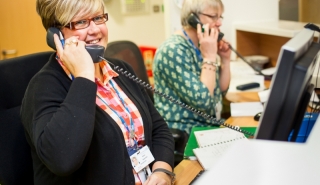Laboratory Medicine
Test Directory / Glucose 6 - phosphate dehydrogenase (G6PD) screen
Glucose 6 - phosphate dehydrogenase (G6PD) screen
EDTA
| Test | Glucose 6 - phosphate dehydrogenase (G6PD) screen |
|---|---|
| Common Abbreviations | G6PD |
| Profile | G6PD |
| Clinical Indication | Glucose-6-phosphate dehydrogenase (G6PD) is an enzyme that catalyses the first step in the pentose phosphate pathway. In the RBC, this is the sole pathway for the production of NADPH, which is required to maintain glutathione in the reduced state. Failure of this process impairs the ability of the red cell to deal with oxidative stress, which may lead to haemolytic episodes and anaemia. Indications for testing include prior to treatment with certain antimalarial or other oxidant drugs, haemolytic anaemia in the newborn (non-immune), and prolonged or severe neonatal jaundice. |
| Specimen Type | Blood |
| Sample Type | EDTA |
| Minimum Volume | 1 x 3 mL (adult) 1 x 0.5 mL (paed) (can be shared with a FBC sample) |
| Special Precautions | |
| Stability | 7 days Discuss with Haematology Consultant if urgent |
| Turnaround Time | 24 hrs (urgent) 48 hours (routine) |
| Laboratory | York Hospital |
| Reference Interval | Reference range printed on final report. |
| Limitations | Reticulocytes have higher G6PD levels than mature red cells. It is recommended that assays not be performed after a severe haemolytic crisis, since G6PD levels may appear falsely elevated. |
| Additional Information | All deficient or equivocal screening results will be referred for a quantitative assay. All females will have their sample referred for quantitative confirmation due to the variable proportion of normal and deficient red cells as a consequence of random X-chromosome inactivation, rendering diagnosis in some female heterozygotes difficult. |






